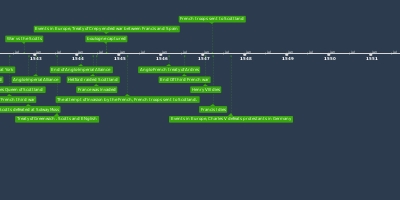Indian independence and the journey of Ghandi
Category: Outro
Atualizado: 7 jun 2020
Autores

Created byNicolas Domingo
Attachments
Eventos
1857 – India’s First War of Independence, termed Sepoy Riots by the British was an attempt to unite India against the invading British.
The rebellion led to the end of the East India Company’s rule in India. In August, by the Government of India Act 1858, the company was formally dissolved and its ruling powers over India were transferred to the British Crown.1885 – The Indian National Congress (also known as the Congress Party/INC) was created and became India’s major political party.
The party became the Nation’s leader in the Independence Movement in its struggle against the British Empire.1915 – Gandhiji returned to India and joined the Indian National Congress.
He took leadership of Congress in 1920 and began agitating against the British.
On January 26, 1930, the Indian National Congress declared the independence of India which the British did not recognize.1916 – Lucknow Pact was an agreement reached between the Indian National Congress and the Muslim League.
Muhammed Ali Jinnah, then a member of the Congress as well as the League, made both the parties reach an agreement to pressure the British government to adopt a more liberal approach to India and give Indians more authority to run their country.1919 – The tragic Jallianwala Bagh massacre took place on April 13.
This event in which Brigadier-General Reginald E.H. Dyer ordered indiscriminate firing at a crowd including women and children, killing hundreds of them, caused much resentment and anger among the people and led to the Non-Cooperation Movement.1920 – The Non-Cooperation Movement was a significant phase of the Indian struggle for freedom.
Protestors would refuse to buy British goods, adopt the use of local handicrafts, picket liquor shops, and try to uphold the Indian values of honor and integrity.1935 – The Government of India Act and the creation of a new constitution laid the foundations for the events that would follow in the next decade and thereafter.1940 – England’s involvement in the Second World War weakened the British Empire.
After shaking off the effects of the First World War this war caused the thinning of the British resources and would be significant in deciding India’s future.1942 – The Quit India movement called for the immediate withdrawal of the British from India and the British responded by putting most of the INC leadership in jail.1947 – End of British rule and partition of sub-continent into mainly Hindu India and Muslim-majority state of Pakistan.
And India welcomed its new dawn with Pandit Jawaharlal Nehru’s famous words – “At the stroke of the midnight hour, when the world sleeps, India will awake to life and freedom…”September 4, 1888: ·Gandhi leaves for England to study law.June 10, 1891: ·Gandhi passes the bar exam in England.Spring 1894: ·Gandhi elects to stay on South Africa, and founds the Natal Indian Congress.1901: ·Gandhi returns to India to attend the Indian National Congress. G.K. Gokhale introduces him to nationalist leaders.1904: ·Nationalists found the magazine the Indian Opinion, and soon print it on Gandhi's farm, the "Phoenix Settlement."July 31, 1907: ·The Boer Republic Transvaal, now under the control of the British, attempts to register all Indians as members; Gandhi and others refuse to register. Their resistance efforts mark the first use of nonviolent non-cooperation by the Indian minority in South Africa, soon calledsatyagraha, or "soul-force."January 11, 1908: ·Gandhi is arrested and sentenced to two months in prison.October 10, 1908: ·Gandhi is arrested again, spends a month in jail1909: ·Gandhi travels to London, pushing for rights of South African Indians. The Transvaal registration law is repealed.November 13, 1913: ·Indians in Natal and Transvaal, under Gandhi's leadership, march peacefully in protest of a racist poll tax and marriage laws. The marches continue through the winter.June 30, 1914: ·Gandhi and Smuts, the Prime Minister of the Transvaal, reach an agreement, ending the protests.July 18, 1914: ·Gandhi sails to EnglandAugust 1914: ·Gandhi arrives in England, just at the outbreak of World War I(1914-1918)January 9, 1915: ·Gandhi returns home to India, and receives a hero's welcome.April 6, 1919: ·Nationalists hold a hartal, or day of fasting and prayer, in protest of the Rowlatt Act, which drastically curtails civil liberties in India.August 1, 1920: ·Gandhi calls for a period of non-cooperation across India.March 10, 1922: ·Gandhi is arrested for sedition.1924-1928: ·Gandhi avoids politics, focusing his writings on the improvement of India.1925: ·Despite his long absence from politics, Gandhi becomes President of the Indian National Congress.February-August 1928: ·Residents in the district of Bardoli protest high rents using methods of non-cooperation inspired by GandhiJanuary 26, 1930: ·Gandhi publishes the Declaration of Independence of India.May 5, 1931: ·Gandhi is arrested for violating the Salt Laws; non-cooperation movements break out across India.January 1931: ·British government yields to protests, releases all prisoners, invites a Congress representative to Britain for a Round Table Conference (the Congress asks Gandhi to be this representative).
Autumn 1931: ·Gandhi participates in the Round Table Conference in Britain.December 28, 1931: ·Gandhi returns to India.January 4, 1932: ·Gandhi is arrested for sedition, and held without a trial.March 22, 1942: ·Sir Stafford Cripps arrives in India, presenting to the Indian National Congress a proposal for Dominion status (autonomy within the British Commonwealth) after the War.August 8, 1942: ·The Indian National Congress rejects the Cripps proposal, and declares it will grant its support for the British war effort only in return for independenceAugust 1942: ·Congress leaders are arrested; Gandhi is imprisoned in the Aga Khan's palaceMay 6, 1944: ·Gandhi is released from the Aga Khan's palaceSummer 1944: ·Gandhi visits Muhammed Ali Jinnah in Bombay, but is unable to work out an agreement that will keep India wholeJanuary 30, 1948: ·Gandhi is assassinated by Nathuram Vinayuk Godse, a Hindu nationalist.
Comments